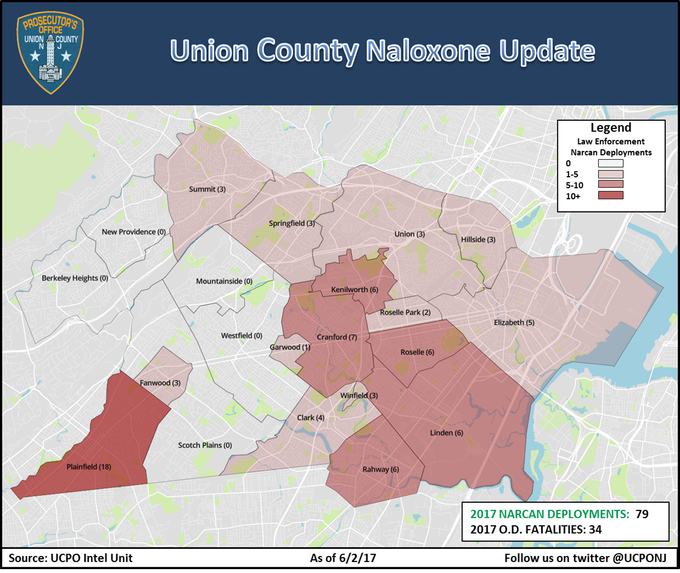NJ.com: New initiative allows people to surrender drugs, get free help
6/3/2017
People struggling with addiction can now give up their drugs without being arrested and get access to free recovery services through a new Union County initiative meant to combat New Jersey's opioid epidemic.
Authorities will screen county residents who want to participate and let eligible citizens surrender their drugs and paraphernalia without facing arrest, prosecution or questioning, officials announced Friday.
Residents with active arrest warrants or those previously convicted of serious offenses will not be eligible for the program.
The initiative, called Community Law Enforcement Addiction Recovery (C.L.E.A.R.), will connect participants with recovery specialists from Prevention Links, a Roselle-based nonprofit that aims to combat drug abuse.
The program is available on Tuesdays and Thursdays from 8 a.m. to 4 p.m. at the Union County Sheriff's Office in the basement of 27 Elizabethtown Plaza in Elizabeth and at Union County Police Department headquarters at 300 North Ave. East in Westfield.
Sheriff Joseph Cryan said law enforcement has for too long dealt with drug abuse only by trying to arrest people who sell, buy or use narcotics.
"Considering the scope and depth of the heroin and opioid abuse epidemic as it exists today, both here in Union County and nationwide, it's beyond obvious that we need to fundamentally change that attitude," he said in a statement.
At least 89 people in Union County died from drug overdoses in 2016, more than any year since 2010, according to the county prosecutor's office. Police departments in the county started using the overdose-reversal drug naloxone in July of 2014 and have since deployed it more than 300 times.
Police across the county have used naloxone 79 times so far this year, with the highest number, 18, in Plainfield. Thirty-four people in the county have died of drug overdoses in 2017.
Naloxone, also known as Narcan, usually is in the form of a nasal spray. It blocks the brain's opioid receptors, enabling a person to recover within seconds.
At least 128,000 people in New Jersey were addicted to heroin or prescription opioids as of 2015, and more than 5,000 people had died in the preceding decade.
The C.L.E.A.R. program will be funded this year by $150,000 from the county and $17,000 of forfeiture funds from the county prosecutor's office.
The Sussex County Prosecutor's Office and the Newton Police Department have similar programs, based on a model created by the Gloucester Police Department in Massachusetts.
Acting Union County Prosecutor Grace Park said drug court is a path to rehabilitation for people charged with drug crimes, while the county's opioid response initiative helps people who overdose.
"But for those who have yet to get to that point, the C.L.E.A.R. program offers a promising game plan for anyone battling addiction," Park said in a statement.

